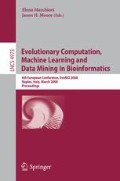Abstract
Classifier fusion strategies have shown great potential to enhance the performance of pattern recognition systems. There is an agreement among researchers in classifier combination that the major factor for producing better accuracy is the diversity in the classifier team. Re-sampling based approaches like bagging, boosting and random subspace generate multiple models by training a single learning algorithm on multiple random replicates or sub-samples, in either feature space or the sample domain. In the present study we proposed a hybrid random subspace fusion scheme that simultaneously utilizes both the feature space and the sample domain to improve the diversity of the classifier ensemble. Experimental results using two protein mass spectra datasets of ovarian cancer demonstrate the usefulness of this approach for six learning algorithms (LDA, 1-NN, Decision Tree, Logistic Regression, Linear SVMs and MLP). The results also show that the proposed strategy outperforms three conventional re-sampling based ensemble algorithms on these datasets.
Access this chapter
Tax calculation will be finalised at checkout
Purchases are for personal use only
Preview
Unable to display preview. Download preview PDF.
References
Hilario, M., Kalousis, A., Prados, J., Binz, P.-A.: Data mining for mass spectra-based cancer diagnosis and biomarker discovery. Drug Discovery Today: BioSilico (Elsevier Ltd) 2, 214–222 (2004)
Hilario, M., Kalousis, A., Pellegrini, C., Muller, M.: Processing and Classification of Mass Spectra, Mass Spectrometry Reviews, vol. 25, pp. 409– 449 (2006)
Shin, H., Markey, M.K.: A machine learning perspective on the development of clinical decision support systems utilizing mass spectra of blood samples. Journal of Biomedical Informatics 39, 227–248 (2006)
Assareh, A., Moradi, M.H.: A Novel Ensemble Strategy for Classification of Prostate Cancer Protein Mass Spectra. In: 29th IEEE EMBS Annual International Conference (2007)
Bhanot, G., Alexe, G., Venkataraghavan, B., Levine, A.J.: A robust meta-classification strategy for cancer detection from MS data. Proteomics 6, 592–604 (2006)
Vlahou, A., Schorge, J.O., Gregory, B.W., Coleman, R.L.: Diagnosis of Ovarian Cancer Using Decision Tree Classification of Mass Spectral Data. Journal of Biomedicine and Biotechnology 5, 308–314 (2003)
Wu, B., Abbott, T., Fishman, D., McMurray, W., Mor, G., Stone, K., Ward, D., Williams, K., Zhao, H.: Comparison of statistical methods for classification of ovarian cancer using mass spectrometry data. Bioinformatics 19, 1636–1643 (2003)
Yasui, Y.: A data-analytic strategy for protein biomarker discovery: profiling of high-dimensional proteomic data for cancer detection. Biostatistics 4, 449–463 (2003)
Opitz, D., Maclin, R.: Ensemble Methods: An Empirical Study. Journal of Artificial Intelligence Research 26, 169–198 (1999)
Xu, A., Krzyzak, Suen, C.Y.: Methods of Combining Multiple Classifiers and their Applications to Handwriting Recognition. IEEE Trans. on Systems, Man, and Cybernetics 22 (May/June, 1992)
Bunke, H., Kandel, A.: Hybrid Methods in Pattern Recognition. In: Series in Machine Perception and Artificial Intelligence, vol. 47, Word Scientific, Singapore (2002)
Breiman, L.: Bagging Predictors. Machine Learning 24, 123–140 (1996)
Freund, Y., Schapire, R.: Experiments with a new boosting algorithm. In: Thirteenth International Conference on Machine Learning. Bari, Italy, pp. 148–156 (1996)
Schapire, R.: The Strength of Weak Learnability. Machine Learning 5, 197–227 (1990)
Ho, T.K.: The random subspace method for constructing decision forests. IEEE Trans. Pattern Analysis and Machine Intelligence 21, 832–844 (1998)
Breiman, L.: Random Forests. Machine Learning 45, 5–32 (2001)
Kuncheva, L., Bezdek, J., Duin, R.: Decision Templates for Multiple Classifier Fusion: An Experimental Comparison. Pattern Recognition 34(2), 299–314 (2001)
Author information
Authors and Affiliations
Editor information
Rights and permissions
Copyright information
© 2008 Springer-Verlag Berlin Heidelberg
About this paper
Cite this paper
Assareh, A., Moradi, M.H., Volkert, L.G. (2008). A Hybrid Random Subspace Classifier Fusion Approach for Protein Mass Spectra Classification. In: Marchiori, E., Moore, J.H. (eds) Evolutionary Computation, Machine Learning and Data Mining in Bioinformatics. EvoBIO 2008. Lecture Notes in Computer Science, vol 4973. Springer, Berlin, Heidelberg. https://doi.org/10.1007/978-3-540-78757-0_1
Download citation
DOI: https://doi.org/10.1007/978-3-540-78757-0_1
Publisher Name: Springer, Berlin, Heidelberg
Print ISBN: 978-3-540-78756-3
Online ISBN: 978-3-540-78757-0
eBook Packages: Computer ScienceComputer Science (R0)

